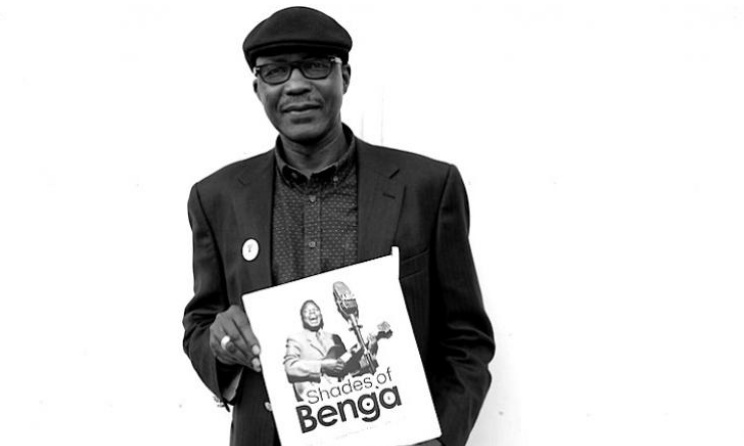Kenya: Benga book ‘is here to preserve identity’
Ketebul Music launched the book Shades of Benga at Alliance Francaise in Nairobi, Kenya, yesterday.
 Tabu Osusa poses with Shades of Benga.
Tabu Osusa poses with Shades of Benga.
“I gave the book the tittle Shades of Benga because benga is the most popular genre of music in Kenya,” Ketebul Music director and principal writer of the book Tabu Osusa said ahead of the launch. “Benga originated from the western part of Kenya but it soon spread across the country.”
Osusa gives several reasons as to why there was a need for this kind of book in Kenya. Speaking to Music In Africa, Osusa said he wanted Kenyan artists to have an identity, as they currently didn’t have a point of reference when it came to music.
Musicians in many other African countries are aware of and appreciate their music pioneers. In Congo, for example, young musicians often refer to Kabaselle, Franco or Tabuley as their role models. This, Osusa says, is not the case in Kenya.
“Artists from Nigeria have revolutionised their original sound Afrobeat by adding pop elements,” he said. “Ghanaian musicians on the other hand do hip hop but based on their original sound, highlife, now called hiplife.”
Another reason that prompted the publication of Shades of Benga was the realisation that without it future generations would have little chance of obtaining information on arts and culture from public institutions in the east African country. “During our writing period, research led us to the national broadcaster, Kenya Broadcasting Channel (KBC), where we had hoped that we could find a rich catalogue of Kenya’s earliest musicians who were often interviewed by the station. Unfortunately we ended up with no materials,” Osusa said.
Ketebul Music also wanted a platform via which it could honour the pioneers of Kenyan music as well as other outstanding musicians that came after them. “When you visit the Kenyan National Archive, there is plenty of information about politicians and athletes, but there is hardly any mention of Kenyan musicians. I am glad that we have created a space for them in history,” Osusa said.
The book, which was co-authored by renowned Kenyan journalist Bill Odidi, scrapes off the misplaced perception that anything associated with the rural environment in Kenya is primitive. Apart from benga, the book also features genres such as Kenyan hip hop, funk, taarab, mwomboko and gospel.
Kenyan musicians have always brought up the issues of the government’s failure to allocate enough resources towards supporting arts and culture in the country. “We relied on foreigners to facilitate our research and publication costs,” Osusa said. “This means that if foreigners withdrew their funding, such projects would seize to exist.”
The publishers recommend the book not only to individuals who wish to broaden their knowledge on Kenyan music but also to institutions as a source of research for students. “This work should not end with Ketebul. I will be happy if someone else follows in our footsteps. Reading is a continuous process, therefore if more research is needed then it should be done,” Osusa said.
















Commentaires
s'identifier or register to post comments